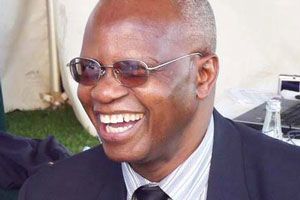
THE last time Finance minister Patrick Chinamasa issued a Budget statement, it was withdrawn some weeks later following the formation of the inclusive government in 2009.
BY OUR STAFF
On Thursday, Chinamasa will present the 2014 National Budget, seen as a signal of the course Zanu PF will take after getting a five-year mandate to rule.
The presentation comes at a time the government is under pressure from a crisis of expectations after promising to deliver “heaven on earth” to the electorate.
Sectors of the economy are stuttering.
Industry is on its knees, weighed down by obsolete equipment and an absence of long-term financing.
A report by the Confederation of Zimbabwe Industries showed that capacity utilisation in the manufacturing sector declined to 39,6% this year, from 44% recorded in 2012.
Companies are struggling to stay afloat and a number are closing shops.
- Chamisa under fire over US$120K donation
- Mavhunga puts DeMbare into Chibuku quarterfinals
- Pension funds bet on Cabora Bassa oilfields
- Councils defy govt fire tender directive
Keep Reading
A number of companies have retrenched employees, with the Zimbabwe Congress of Trade Unions saying at least 300 employees were being retrenched weekly.
Those companies that have remained are failing to pay salaries. The banking sector needs a lifeline as it is grappling with the biting liquidity crunch, unable to seek assistance from the central bank.
The banking sector has been hit by levels of non-performing loans, as companies and individuals struggle to repay them due to the prevailing environment.
In a report to MPs at a pre-budget workshop, the Banker’s Association of Zimbabwe recommended the creation of a Special Purpose Vehicle (SPV) to house the non-performing loans to enable banks to extend lending. It said funding of the SPV could be through long-term bonds.
Chinamasa has to come up with measures to generate revenue needed to fund increased expenditure created by the new Constitution. The Constitution enlarged state bureaucracy by increasing the number of legislators and creating commissions and provincial councils, which all need to be funded.











